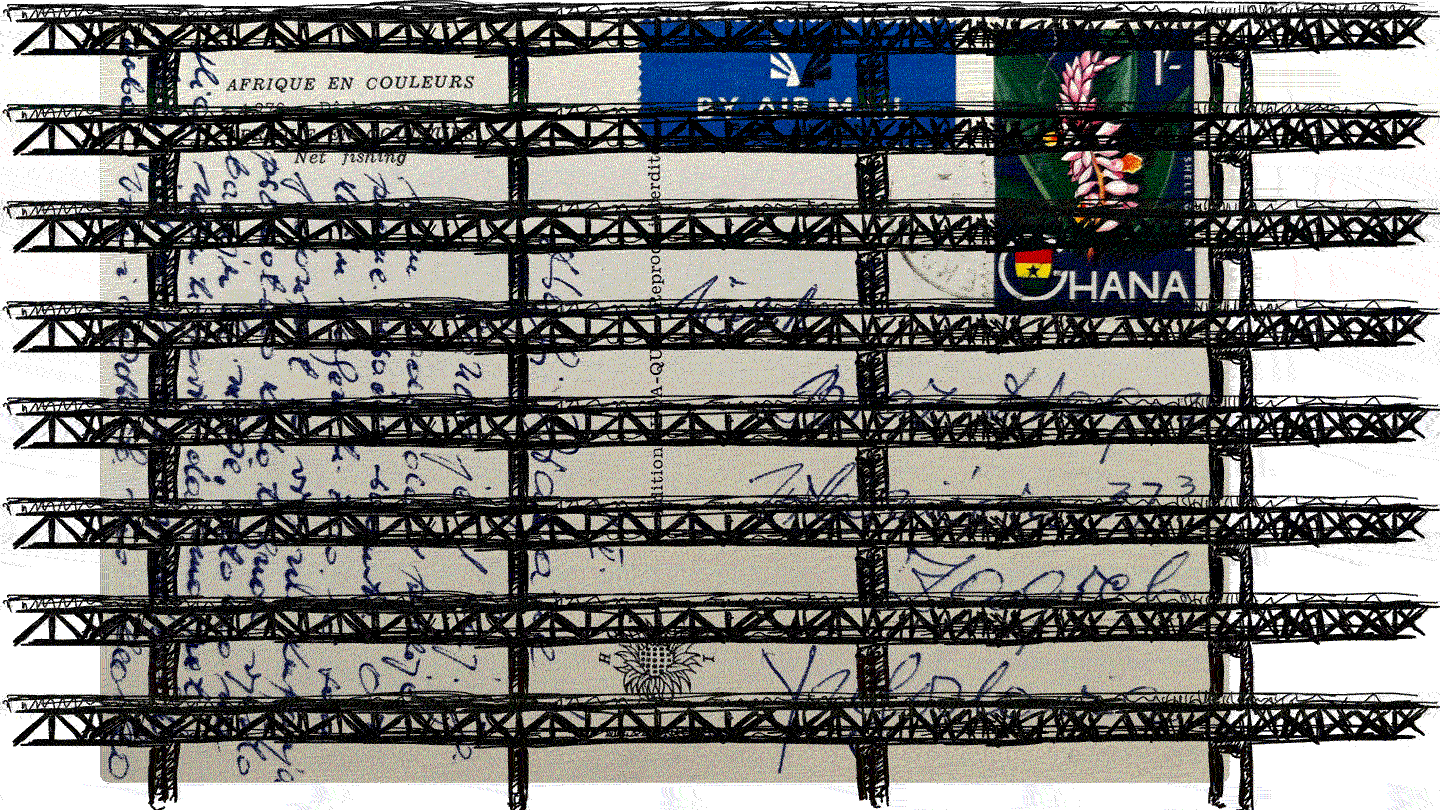November 16–18, 2023
Pod turnom 3
SI- 1000 Ljubljana
Slovenia
As part of the 35th Ljubljana Biennale of Graphic Arts, which explores the ecosystem of connections, solidarities and histories of resistance resulting from the formerly close relations between post-independence Ghana and the former Yugoslavia, an international symposium entitled Agyina: Advisory of Sages will be held in Ljubljana from November 16–18. This edition of the Biennale, with a main exhibition spanning various venues around the city, features the work of more than 50 artists drawn from the pool of connections between contemporary art and printmaking in the fields of architecture, design, agriculture and botany. Artistic Director Ibrahim Mahama sees this as an opportunity to revive past connections and strengthen transnational alliances.
The Biennale’s public programme is curated by Exit Frame Collective from Ghana, which has named the symposium Agyina in reference to Ghana’s largest ethnic group and their notion of a council that speaks to the fact that it takes more than one voice to have a meaningful discussion or debate.
The symposium’s three-day extended programme of film screenings, presentations, talks, lectures, panel discussions, exhibitions, tours and social gatherings follows the curatorial premise of the 35th Ljubljana Biennale of Graphic Arts to explore the void and the space of potential, opening a window onto a cosmos of forms, solidarities, futures, resistances and transnational relations. Besides the void, another important offshoot for this edition of the Biennale is the idea of the gift, inspired by the political ambitions of the legendary Ghanaian artist and intellectual known under the pseudonym Kąrî’kạchä Seid’ou, who, as a pedagogue at the Kumasi Academy of Art, sought to emancipate the teaching of art and turn the work of art from a marketable commodity into a gift. kąrî’k· achä seid’ou is the keynote speaker at the Biennale Symposium in Ljubljana. He will disclose his perspectives on the politics of the void—its conceptual framework, emancipatory nature and other potentials relating to his art practice and its influence in Ghana and elsewhere. He will also discuss what he has theorised and practised as the gift, which is not based on reciprocity but on radical sharing and/or generosity on a planetary scale.
An important component of the symposium is the diverse film programme, which focuses on various topics related to the African continent. The opening film of the symposium features thousands of never-before-seen artworks by the Ghanaian people of Asante and the city of Benin, followed by a story about Cuban support for the African revolutions. The third film looks at the unusual path of architecture in Lebanon, while a documentary diptych tracing the archival path of the emergence of the Third World Project and the Non-Aligned Movement concludes the selection of four films in the programme.
The central discursive part of the programme will take place at the end of the symposium, with a panel discussion on three institutions—Gudskul (Indonesia), Àsìkò Art School (Nigeria), blaxTARLINES KUMASI (Ghana)—whose work promotes important and successful models of radical pedagogy. The discussion will be moderated by Exit Frame Collective. Afterwards, Selom Koffi Kudjie, one of the Biennale curators, will present the work of the Savannah Centre for Contemporary Art (SCCA), which focuses on 20th-century artistic and cultural practices and brings together artists based in Tamale, Ghana. This will be followed by a panel discussion with Doreen Mende, Lama El Khatib and Charlotte Grace in conversation with Dubravka Sekulić, who will reflect on how emancipatory internationalisms of the past can encourage those of the present to move towards a future without hegemony and injustice. The symposium will conclude with a performance, installation and discourse in which Sonja Pregrad, Ana Dubljević, Viktorija Ilioska and Dražen Dragojević will explore the repositioning of Non-Alignment at the intersection of speculative historicism and futurism.
The diverse symposium programme is accompanied by the publication and presentation of the Biennale Reader, which offers a critical insight into, and questions the complex nature of, the emancipatory undertone of this year’s Biennale edition entitled From the void came gifts of the cosmos. It brings together texts and experimental contributions from a wide range of contributors, from curators, architectural historians, critics, theorists and artists.
The symposium will also see the opening of the exhibition of the print portfolio of the 35th Ljubljana Biennale of Graphic Arts, The Holy Corner, curated by Yasmín Martín Vodopivec of the International Centre for Graphic Arts. The print portfolio includes a selection of prints and multiples, which can be ascribed the status of a gift that symbolically manifests the explicit aspirations of the Biennale. Through their placement in the public space, they unveil a reflection on new ideas, concepts and practices, as well as the meaning of the gift and its reciprocity.

